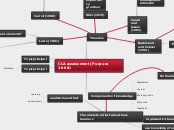by Isabel Cardona 9 years ago
415
purpura 2008
The text explores the intricate relationship between language assessment and communicative competence, emphasizing the need for a multifaceted approach to evaluating language skills.

by Isabel Cardona 9 years ago
415

More like this
assign importance to one component of language
Can be assessed separately